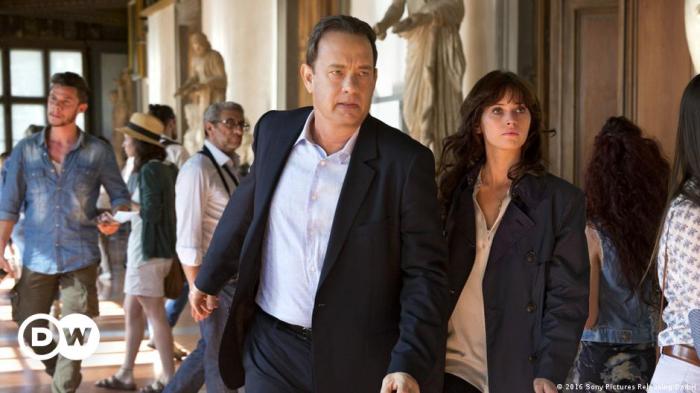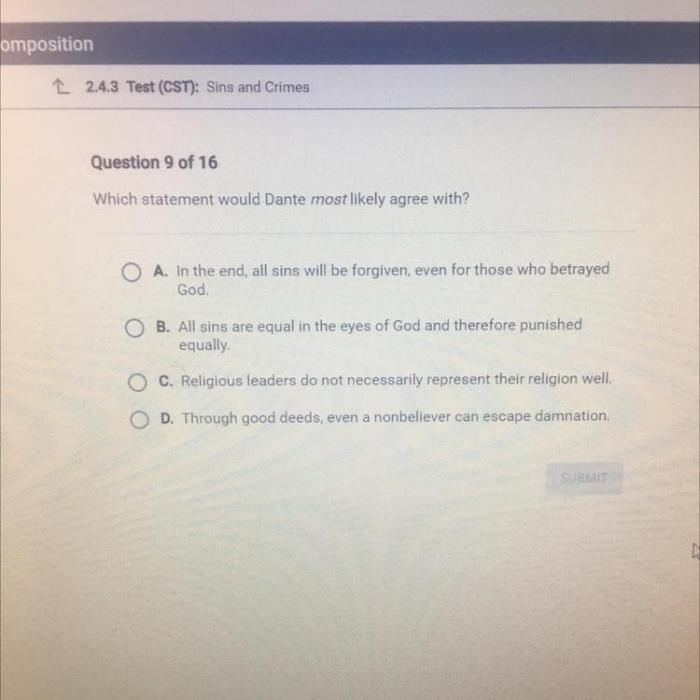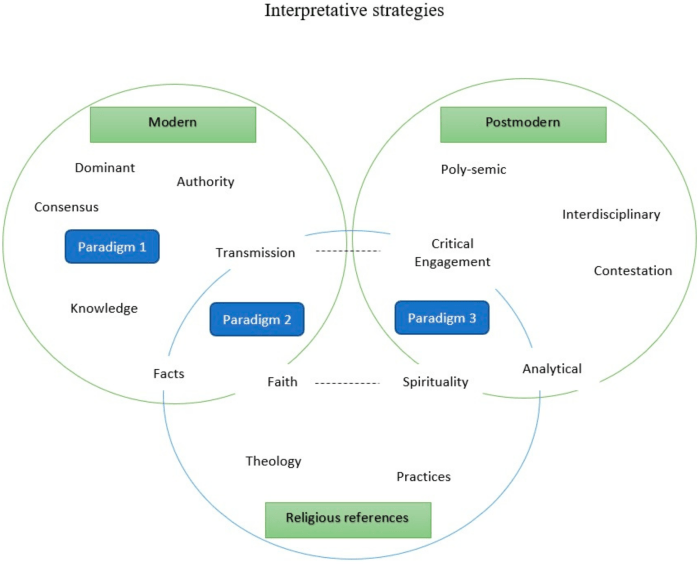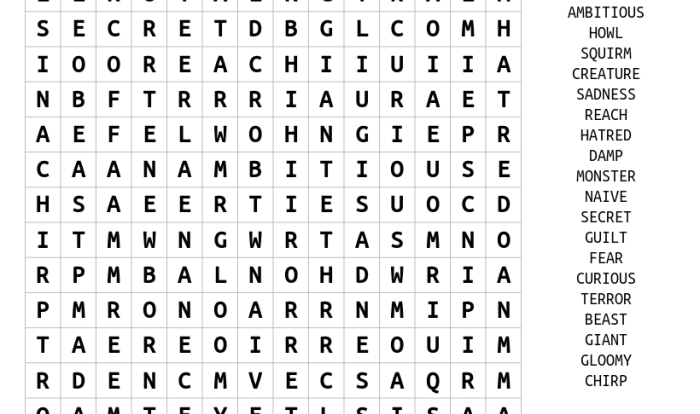Which statement would Dante most likely agree with? This question delves into the fascinating realm of Dante Alighieri’s beliefs and values, offering a glimpse into the mind of one of literature’s greatest poets. From his profound understanding of justice and morality to his exploration of the nature of sin, Dante’s writings provide a rich tapestry of insights into the human condition.
Dante’s journey through the Inferno, Purgatorio, and Paradiso reveals his unwavering belief in divine justice, the transformative power of love, and the significance of free will. This essay will explore these themes in detail, examining how Dante’s personal experiences and the cultural context of his time shaped his worldview.
Dante’s Beliefs and Values

Dante Alighieri, the renowned Italian poet and philosopher, held profound beliefs about justice, morality, and the nature of sin. His core values are reflected in his literary works, particularly in his masterpiece, “The Divine Comedy.”
Dante believed that justice was an essential virtue and that it should be administered fairly and impartially. He condemned those who committed acts of injustice and believed that they would be punished in the afterlife. In “The Divine Comedy,” Dante depicts the punishments that sinners endure in Hell, based on the severity of their crimes.
Dante also held a strong belief in morality and the importance of living a virtuous life. He believed that humans have the capacity for both good and evil and that they must choose to do what is right. In his works, Dante often explores the struggle between virtue and vice, and he portrays the consequences of both virtuous and sinful actions.
Dante’s personal experiences, including his exile from Florence, influenced his beliefs and values. He believed that those who had wronged him would be punished in the afterlife, and he used his writings to express his anger and frustration.
The Nature of Human Nature
Dante believed that humans have the capacity for both good and evil. He believed that humans are born with a natural inclination towards sin, but that they also have the ability to choose to do what is right. In “The Divine Comedy,” Dante depicts the struggle between virtue and vice as a constant battle within the human soul.
Dante believed that free will and responsibility are essential aspects of human nature. He believed that humans are responsible for their own actions and that they will be judged accordingly in the afterlife. In his works, Dante portrays the consequences of both virtuous and sinful actions, and he emphasizes the importance of making the right choices.
The Role of Divine Justice, Which statement would dante most likely agree with
Dante believed that divine justice is a fundamental aspect of the universe. He believed that God is just and that he will punish those who have committed sins. In “The Divine Comedy,” Dante depicts the punishments that sinners endure in Hell, based on the severity of their crimes.
Dante also believed that God is merciful and that he will forgive those who repent of their sins. In his works, Dante often explores the themes of redemption and forgiveness, and he portrays the transformative power of divine love.
The Importance of Love and Forgiveness
Dante believed that love is a powerful force that can overcome evil. He believed that love can transform people and lead them to do what is right. In “The Divine Comedy,” Dante portrays the love between Beatrice and Dante as a symbol of divine love.
Dante also believed that forgiveness is an important virtue. He believed that God is forgiving and that he will forgive those who repent of their sins. In his works, Dante often explores the themes of redemption and forgiveness, and he portrays the transformative power of divine love.
The Literary and Cultural Context
Dante’s writings reflect the intellectual and religious currents of his time. He was influenced by the works of classical authors such as Virgil and Ovid, as well as by the writings of Christian theologians such as Augustine and Aquinas.
Dante’s works also reflect the political and social context of his time. He lived in a period of great turmoil and upheaval, and his writings often reflect his concerns about the state of Italy and the Church.
Questions Often Asked: Which Statement Would Dante Most Likely Agree With
What was Dante’s view on justice?
Dante believed in a strict and unwavering divine justice, where sinners are punished according to the severity of their crimes.
How did Dante portray the struggle between virtue and vice?
Dante’s works depict a constant battle between virtue and vice within the human soul, with characters facing temptations and making choices that determine their ultimate fate.
What role did love play in Dante’s philosophy?
Dante believed that love, particularly divine love, had the power to transform and redeem the human soul, leading it towards salvation.


